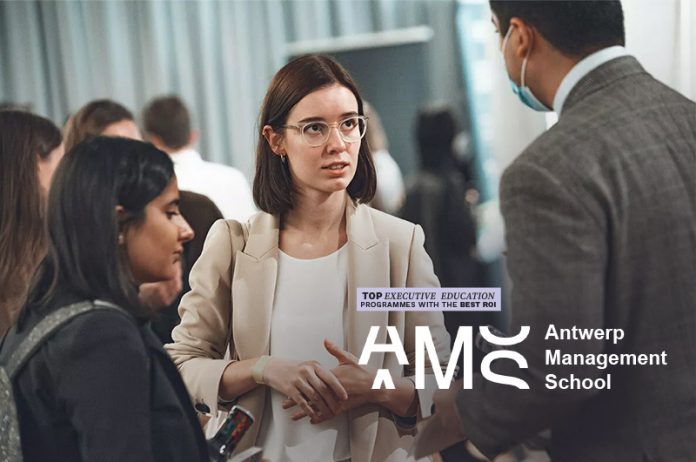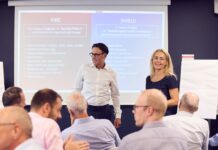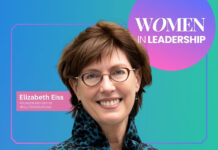Interview with Antwerp Management School‘s Prof. Dr. Goran Milenković, Academic Director of the EMBA and Prof. Dr. Steffi Weil, Associate Dean for International Outreach & Academic Director (and Professor)
Today’s business world is a complex, difficult-to-understand space for executives. It’s reasonable to suppose that good preparation for functioning effectively in such an environment might involve first understanding oneself. Here, Professors Goran Milenković and Steffi Weil of Antwerp Management School explain how the school’s PhD and EMBA programmes place an emphasis on personal development.
Good day, Professor Milenković and Professor Weil! Thank you for lending us your time and it’s a pleasure to speak with you both. How has the new year been treating you so far?

PROF. DR. GORAN MILENKOVIĆ: Like all international business schools, we have entered the new year with challenges due to COVID. Nevertheless, our intake numbers look good, and our operations teams, faculty, and international partners are ensuring continued delivery of onshore and offshore modules. As we speak, our EMBA team is making final preparations for participants to visit MIT in the USA in January, and the American University in Cairo in February. Our intake in Moscow is also doing well and we have just recently launched our programme in Paris. For the latter two, we are very grateful to our local partners IBS/Ranepa in Russia and ESSCA School of Management in France.
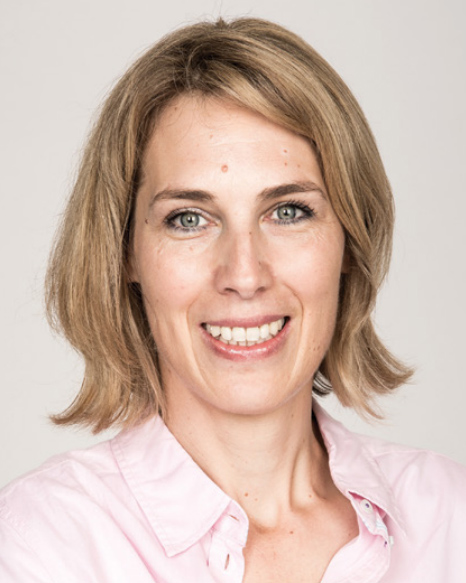
PROF. DR. STEFFI WEIL: Thank you very much for this question. The year has started off very well. We have a lot of interesting projects in the pipeline and we have two PhD defences in January. This energises me a lot.
For 60 years and counting, Antwerp Management School has looked beyond the mere transfer of technical knowledge and imparted generations’ worth of leadership wisdom. What would you say are the cornerstones of the university’s teaching philosophy?
GM: Our motto, “Opening Minds to Impact the World”, has influenced our approach to knowledge transfer since the very beginning. As a management school, we try to nurture future leaders in both industry and the social enterprise sector. We don’t subscribe to any one individual economic or social theory. We pass on the multitude of conceptual options and views about management challenges and allow participants to make their own choices.
The AMS approach prides itself on simplicity: the better you feel as a person, the more confident you are when dealing with complicated business situations. How important is a healthy self-image when it comes to being a leader?
SW: This is an interesting question and certainly made me reflect. I am not an expert in healthy self-image but I luckily work for an organisation that puts a lot of emphasis on a healthy working environment. Healthy in the sense that we can identify with our work, that we enjoy what we are doing and that we can address issues that might become challenging. I think this kind of open working environment also has a positive impact on self-image and on leadership. To be able to discuss, reflect and brainstorm helps me to develop a positive self-image. To be able to “be who you are” makes for a good leader. A good leader is certainly not a perfect leader, but an environment which allows for mistakes and critical reflection creates good leaders.
Antwerp Management School is the only Belgian business school to be included in the FT’s Top 100 list of Executive MBAs, consequently earning you the top spot in all of Benelux. How does it feel to gain all this recognition?
GM: Of course, it’s a great honour. We are a medium-sized business school, and the Benelux is a small geographic space. To be recognised on a par with, or even better than other global institutions is flattering. Overall, we are ranked number 45 in the group of global EMBAs, but on our specialities, such as international diversity or ESG/CSR, we score in the top quintile.
Executives who have successfully completed the EMBA programme describe it as “transformative” and “career-changing”. Do you recall a particular student’s success story or the career paths of some of your participants?
GM: Our participants are typically 35-45 years old. They are mature individuals with 15-plus years of practical experience. All are professionally successful. Deciding to do a degree programme at that stage of one’s life means that it is not just about acquiring additional knowledge. There is also an inner need to better understand oneself in order to correctly shape the next stages of one’s career. That is why our programme includes an extensive personal development portfolio. In addition to the usual array of psychometric tests and individual coaching that are quite common nowadays, we are fortunate to have our own NeuroTraining Lab. For example, our participants don’t just discuss the links between personality types and leadership styles. In our lab, they observe their own brain activity and recognise the influence of their own subconscious reactions in different situations, such as stress, conflict, and so on. This combination of soft and hard insights really improves personal effectiveness and communication. For many, it is a real eye-opener and helps clarify personal ambitions and understanding of themselves. In our last survey, 78 per cent of participants said that they had achieved their goals for doing an EMBA within three years of graduation.

With AMS now holding the highest ranking ever achieved by a Belgian business school with its EMBA, what would you say are the programme’s unique features and highlights? The Positive Impact Project, for example, is a unique way of stimulating global challenges.
GM: Besides the core subjects present in all EMBA programmes, such as strategy, leadership, finance, and so on, we pay special attention to the transitional challenges of global business, including environmental, societal, and governance issues. The latter is not positioned as a corporate responsibility, but rather as a deeply personal one. Future-oriented managers understand that responsible leadership is as much about ESG-related actions as it is about consistent behaviour. Our programme has ESG elements incorporated in every course and, on top of that, we ask our participants to do a hands-on Positive Impact Project. We are inspired by the notion that business and sustainability are not conflicting viewpoints. Rather, the world is still discovering how to combine the two. In total, we devote about 150 teaching hours to ESG-related topics and about 80 hours on fieldwork. Some participants focus on their local communities or their workplace. Others have crossed borders and even continents. We had participants working on initiatives reducing poverty, supporting the development of alternative energy sources, working in prisons, building schools, changing agroforestry, tutoring children, or assisting single parents. This is not charity work. It pushes every student to seriously go outside their comfort zone, but use their talents, management experience, and knowledge to find opportunities to bring business and ESG closer together. Every project proposal is carefully reviewed and finally evaluated by a mixed panel. And the emphasis is always on ensuring both short-term and long-term impact.
Aside from its Executive MBA programmes, AMS also offers a PhD programme for executives? Professor Weil, in your role as academic director of the PhD programme, can you explain the programme to us?
SW: Yes, of course, with pleasure. I love talking about the PhD programme, because it gives me so much joy to witness how our PhD candidates engage in this life-changing project with us. But first things first – what is the PhD programme for executives? It is a four-year programme that supports and guides executives/managers to obtain a PhD degree. A PhD degree is a doctoral degree, the highest academic title one can receive. Our programme runs in close collaboration with the University of Antwerp. This means that our PhD candidates enjoy the full service of Antwerp Management School while being able to receive a fully fledged PhD degree from the University of Antwerp. To obtain a PhD is a life-changing experience and we are very proud to offer a programme to senior executives who aim to fulfil their dream with us. Our program is tailor-made around their needs. To hold an executive position in industry is challenging and to write a PhD alongside it is even more challenging. We aimed to turn this challenge into a opportunity. We see a senior leading position as an enabler to conduct research, to publish and to successfully graduate with a PhD degree. We have witnessed that a structured curriculum that educates our candidates in research and writing skills leads to success. The programme is now running in its fifth year and we can honestly say that our bespoke programme really works. We are immensely proud to call our graduates from all over the world “Doctor”! The degree itself, of course, opens new doors, not only intellectually but also career-wise and on a personal level. To be able to celebrate these successes with our candidates and to have the honour to get to know them personally during the four-year journey gives me a lot of positive energy. I am also lucky to be surrounded by a strong team that supports the candidates during this exciting PhD journey.
Professor Milenković, you’ve mentioned that in order to fully step into a leadership position, you may need to lose attachment with certain functions of the model to welcome a broader sense of understanding the bigger picture. For people intimidated by the volume of knowledge needed to start a business, how would you encourage them to take that leap of faith?
GM: An EMBA is a “generalist” programme and designed for professionals wanting to move beyond the confines of a single function or specialised occupation. Moving out of the “cosiness” of being an expert in a particular domain to becoming a general manager can be daunting. But that does not mean that everyone needs to be an expert in everything. The EMBA gives one the tools to analyse and rationalise, to understand the jargon of multiple functions, and to know what to ask if you don’t understand something. All general managers go through this “functional detachment” process. And an EMBA is the quickest way to learn how to do it.
What are the principal benefits that executive education has to offer in the post-COVID environment?
GM: COVID has brought a massive change to the way business is done, the way customers behave, and the way managers need to lead. I like to compare it to league football. We had sunshine for a while and now, due to the pandemic, it is raining continuously. The fact that it is raining does not mean we stop training or playing football. We must adapt how we train and what skills we train for. We already see that what is considered “good leadership practice” is different when you cannot meet your colleagues face-to-face. For example, our experience confirms that informal leaders in virtual teams are elevated to that position not by demonstrating traits of “a good leader prototype”, such as charisma, but rather by helping the dispersed team to be efficient and being a worker bee themselves. We also see that company cultures are changing. I live in Germany and, two years ago, you needed written permission to work from home. Now you must get permission to come to the office. In that situation, how does one pass on a company culture or work ethic, which is often instilled by replications, to new recruits who have never seen a colleague at work? There are answers. But they are different from what we have been teaching during the BC (“before COVID”) era.

Professor Weil, as an expert in Global Political Economy it must be difficult to witness how the global arena has changed. As Academic Director of the China-Europe Business Master, would you be able to share your perspective on the current global political economy?
SW: Yes indeed it is difficult to witness how political and economic protectionist behaviour is rising. It is especially sad to watch how China has closed its borders to the outside world. This has implications not only for global supply chains but also for global politics. China remains a strong global player, an important stakeholder for international investments and global politics. The international community aims to have a two-tier approach: to remain open to China as a global economic actor, while addressing sensitive political issues in a relatively open manner. Yet, if I am very honest from an academic perspective, the current situation allows me to address very interesting research topics. We have learned that we cannot take liberalism or even democratic rights for granted. We should remain critical and learn how to ask different questions. We also address the new challenges and questions in our programmes. We have integrated new exciting topics on supply chain, global trade and the role of multiple international stakeholders into our lectures. It is exciting to discuss new questions that arise with our students and executive candidates.
What are the biggest challenges you have encountered in handling multicultural groups and addressing the varying needs of business leaders across different industries? How do you overcome them?
GM: Our typical cohort is very mixed. We have on average 15-20 nationalities, with people coming from 20-30 industries. Around 40 per cent are women. This is a wonderful opportunity to listen to each other and discover each other’s views and experiences. I really believe that about half of the knowledge gained during our programme comes from participant interaction and learning from each other. Of course, we also have interesting discussions outside the classroom, especially during or after joint dinners. Views are many and widely varied. In addition, we spend about 20-25 days abroad during study visits to top academic institutions in Asia, Europe, the USA, and Africa. While there, our students have joint sessions with EMBA counterparts and experience teaching styles different from ours. This creates a wonderful and, I would even say, sparkling learning environment. But overall, I’m always pleasantly surprised how relationships grow over time and how people from different backgrounds and cultures are brought together through learning and, by graduation time, start treating each other not as colleagues but as members of an extended family.
SW: That is a very good question. In the executive PhD programme, there are lesser challenges, because the research of our candidates benefits from different perspectives and cultures. A number of our PhD candidates even conduct research on multicultural aspects. Yet, of course, there are challenges when working in a very international environment such as ours. We have students from all over the world. We are very much aware of this and we educate our students and staff on multicultural differences. In our Global Leadership Skills track, we work with our students on self-awareness, on how to become global leaders and global citizens, and societal consciousness. In COVID times, skills like this are particularly helpful and crucial. The biggest challenge was when the students enjoyed their semester in China when the Chinese government decided to lock down the country. Thanks to our international network and our strong coaching and Global Leadership Skills team, we were able to bridge cultural differences even during this constraining period. The students grew stronger as a team. There was great mutual understanding in a situation where students from multiple backgrounds were locked up together in student housing.
It takes a certain level of commitment to pursue a postgraduate degree. How do you make sure that the participants and their organisations gain the highest return on their investment in terms of knowledge acquisition, career advancement, long-term profitability for the business, and other measures of ROI for executive education?
GM: There is no way around it – doing an EMBA is a serious investment, in both time and money. The ROI should exceed the total opportunity cost. We strongly encourage all students to make every effort and to use assignments and projects to solve their own company-related challenges. At the same time, we take a holistic view to ROI; that is, we value equally monetary and non-monetary returns. Of course, it is not easy to measure non-financial impact. We find that the best indicator of a positive ROI is word-of-mouth recommendations by employers. We are very happy with the fact that over 80 per cent of our participants have partial or full employer backing, when it comes to fees and study time. So, obviously, employers do see a positive ROI.
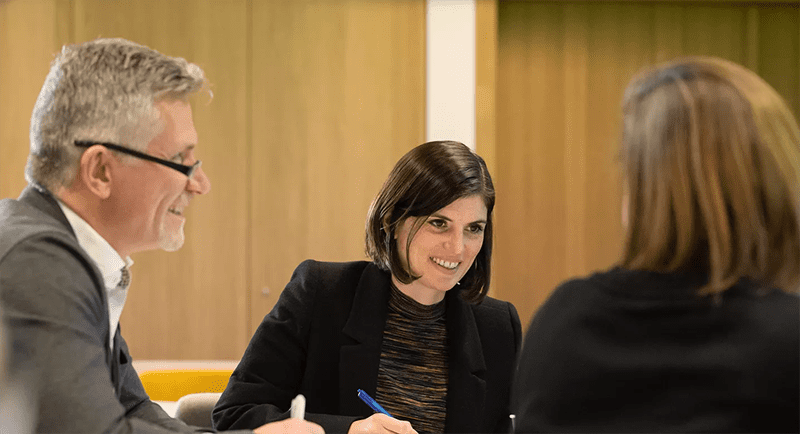
As the Academic Director of Antwerp Management School’s EMBA, what do you find the most exciting when it comes to nurturing the mind of an eager student?
GM: For me personally, the biggest reward is the “twinkle in the eye” of a student that I see when a discussion or comment has made them think about a topic in a way other than what they are used to.
What will future participants in the EMBA programme be most interested in learning from it, in order to prepare them for this new world?
GM: The world is ever-changing. The role of leaders is ever-changing. I’m a great believer in William Gibson’s adage that the future is already here, but that it’s unevenly distributed. We hope that our EMBA programme will continue to bring some of that future to our participants in more ways than one.
What can we expect to see from Antwerp Management School in 2022?
GM: For our EMBA programme, the biggest addition will be the start of a fully fledged cohort in Paris. For our school, however, a big step will be finalising preparations for Triple Crown accreditation and joining the 1 per cent of business schools that have achieved this distinction.
SW: A lot of exciting things! In the last two years, we have managed the COVID crisis quite well. This very unique situation also led to more innovation. We are excited to further develop and implement our projects on sustainable transformation and internationalisation. You will see exciting new teaching and learning aspects, more PhD candidates who will graduate, and new hybrid international short programmes where we aim to combine our domestic and international ecosystem and expertise.
The article was first published on January 30, 2022.
Executive Profile

Prof. Dr. Goran Milenković, Goran Milenković is Professor of International Business and Academic Director of the AMS EMBA Portfolio. Prior to joining AMS, he spent 30 years collaborating with blue-chip companies such as DHL, Deutsche Post, Henkel, Stihl, and the American Management Association. He holds a DBA from the Henley Management College, a master’s degree from the American University in Beirut, and a BS from Belgrade University.

Prof. Dr. Steffi Weil, Stefanie Weil is Associate Dean for International Outreach & Academic Director (and Professor) of Antwerp Management School. Before she started her academic career in 2007, she worked as managing director in various consulting companies in Germany, France and the UK. Prior to her current posts, she held positions of research fellow at the Brussels Institute for Contemporary China Studies (BICCS) and was Head of Business Department and Associate Dean at the Vesalius College/Free University Brussels. Moreover, she has worked as a research follow at Tong Ji University in Shanghai. She is specialised in international political economy and China’s foreign policies. She has published on comparative politics across China, the European Union and the United States, on lobbying in China, and on comparative Western-Chinese political concepts.


